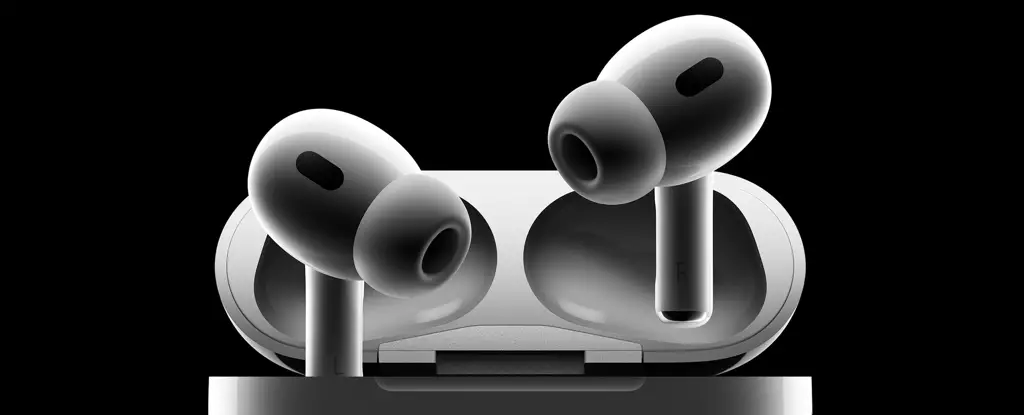In a significant move that may reshape the landscape of hearing aids, Apple has secured approval from the U.S. Food and Drug Administration (FDA) to integrate a hearing aid feature into its popular AirPods Pro 2. This unprecedented development aims to cater to those with perceived mild to moderate hearing loss, positioning Apple as a potential disruptor in the traditional hearing aid market. As the world grapples with increasing rates of hearing impairment, Apple’s latest innovation not only emphasizes technology’s role in healthcare but also highlights the company’s strategy to blend everyday consumer electronics with essential health solutions.
Historically, hearing aids have been associated with clinical settings, requiring complicated fittings and exorbitant costs. The addition of Apple’s hearing aid feature transforms the conventional paradigm, allowing users to simply utilize devices they already own to enhance their hearing capabilities. Priced at $249, the AirPods Pro 2 offers a cost-effective alternative compared to the average clinical-grade hearing aids, which typically come with a hefty price tag and often require dedicated visits to audiology clinics. The shift towards digitally-enabled audio assistance signifies a consumer-first approach, making hearing support more accessible to a broader audience.
Moreover, Apple’s hearing support feature integrates seamlessly with the iPhone and iPad, facilitating a user-friendly audio experience. Through a concise five-minute hearing assessment, the technology enables users to gauge their hearing capabilities, creating a personalized auditory profile. This feature not only simplifies the traditionally cumbersome process of adapting to hearing aids but also utilizes Apple’s existing ecosystem to amplify user experience across various forms of media—be it music, movies, or phone calls.
The FDA’s endorsement underscores the potential efficacy of AirPods Pro 2 as a legitimate hearing aid alternative. The agency highlighted that research indicated users experienced benefits comparable to those of professionally fitted devices. Apple’s vice president of health, Dr. Sumbul Desai, emphasized the crucial role of hearing health in overall well-being, a notion that has often been overlooked. This insight aligns with the broader public health initiative aimed at addressing hearing loss, which affects millions globally.
In a statement, the FDA pointed out the pressing need for expanded hearing support technologies, especially considering that more than a billion people worldwide face mild to moderate hearing loss. Apple’s initiative not only enhances accessibility but also broadens the scope of how technology can be applied in healthcare. By integrating machine learning and health tracking functionalities, Apple provides a dynamic solution that evolves with the user’s needs and preferences.
The introduction of this hearing aid feature is indicative of Apple’s ongoing commitment to intertwining health functionalities with consumer devices. Notable advancements like the Apple Watch, which monitors various health metrics and alerts users to irregularities, demonstrate the company’s strategic pivot towards health technology. By developing products that encompass physical and mental well-being, Apple sets a precedent for other tech companies, urging them to innovate in the health sector.
Furthermore, this shift coincides with a rising demand for digital health innovations, particularly in the wake of the global pandemic, which accelerated the adoption of telehealth and at-home health solutions. Apple’s initiative not only meets current market needs but also fosters a consumer shift towards preventive health management, enabling individuals to track and take charge of their hearing health proactively.
Apple’s foray into the hearing aid market through its AirPods Pro 2 marks a pivotal moment for both the company and consumers facing hearing loss. By democratizing access to hearing assistance, Apple paves the way for a future where technology plays a critical role in personal health management. As the device rolls out to over 100 countries in the coming months, it promises to redefine the standards of auditory health while reinforcing Apple’s position as a leader in integrating technology with overall wellness.


Leave a Reply